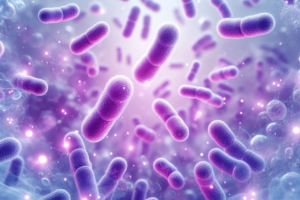What is dyspepsia?1
Dyspepsia, also called indigestion, is a very broad term used to describe a range of complaints/ effects related to the stomach and the upper part of the digestive tract. Gas, bloating, stomach pain, and discomfort in the upper abdomen, mainly after eating, are all signs of dyspepsia. The most common form of chronic indigestion is termed as functional dyspepsia.
Functional Dyspepsia
Functional dyspepsia is a chronic disorder of sensation and movement (Peristalsis) in the upper respiratory tract. Peristalsis is a very common and normal downward squeezing and pumping of the stomach, esophagus, and small intestine that begins after swallowing. This is called functional, as there are no measurable or observable structural abnormalities found to explain persistent symptoms. The symptoms of indigestion or dyspepsia are similar to those of other digestive diseases such as gastroesophageal reflux or GERD, irritable bowel syndrome, stomach cancer, and liver disease.
What causes dyspepsia?
- Eating over the limit or eating spicy or greasy food.
- Stress and unresolved emotional trauma
- Drugs such as NSAIDs and corticosteroids
- Helicobacter pylori, a bacterial infection
Symptoms of Dyspepsia 2
- Disturbed motility
- Heartburn
- Sour taste in the mouth
- Excessive burping
- Nausea
- Vomiting
- Fullness and bloating
Management of functional dyspepsia3
- Dietary and lifestyle modifications
- Medications: Neutralizing acid and blocking its production
- Histamine-2 receptor antagonists (H2RAs): Cimetidine, famotidine, nizatidine and ranitidine
- Proton pump inhibitors (PPIs): omeprazole, pantoprazole, esmoprazole, and rabeprazole.
- Treatments that reduce reflux by increasing the lower esophageal sphincter (LES)
- A plant-based prokinetic agent: Iberogast
Nutraceutical Products for treatment of FD4
- Zingiber officinale root extract
- Standardized Thymus extract.
- Artichoke extract
- Peppermint oil-caraway oil
What is GERD (gastroesophageal reflux disease)? 5
GER (gastroesophageal reflux) and gastroesophageal reflux disease (GERD) are very common among individuals of all ages and can be caused by acid or the contents of the stomach rising into the esophagus or mouth. The discomfort caused by acid reflux often includes symptoms of vomiting or heartburn and a burning sensation in the chest or stomach pain. When GER occurs on a consistent basis, it is considered GERD. Helicobacter pylori is the most important risk factor in the complete development of ulcers, gastroesophageal reflux diseases. GERD symptoms can lead to serious problems.
Signs and symptoms of GERD? 6
- Chest pain
- Nausea
- Dry coughs
- Sore throat
- Difficulty swallowing
- Regurgitation of food
Management of GERD7
Lifestyle changes
- Eat meals at least 3 hours before bed
- Weight loss
- Avoid smoking
- Avoid triggering foods: Fried food, Fatty food, etc.
Medications:
- Antacids: Provide short-term symptom relief
- Histamine antagonist: Decrease the body’s stomach acid formation
- For more severe symptoms:
- Proton pump inhibitors : A more effective medication for decreasing stomach acid production
- Omeprazole, rabeprazole, lansoprazole, and pantoprazole
What is H.pylori?
H.pylori is a type of bacteria. These types of germs can enter the body and live in thedigestive tract. It can ultimately lead to ulcers and sores in the lining of the stomach or the upper part of small intestines. H.pylori infection is a type of infection that is very common.
Management of H.pylori
- Antibiotics to kill the bacteria in the body, such as metronidazole, tetracycline, amoxicillin, and tinidazole
- Bismuth subsalicylate
- Medicine that blocks the chemical histamine
- Drugs such as rabeprazole, pantoprazole, and esomeprazole
Probiotics for treatment of GERD:
- Lactobacillus johnsonii
- Bifidobacterium bifidum
- Lactobacillus gasseri
- Bifidobacterium lactis
- Lactobacillus reuteri
Summary
Infections such as dyspepsia, GERD, and H.pylori infections can be either bacterial, parasitic, or viral. No matter what the cause is, the symptoms are very disturbing and unpleasant.
Some infections can be resolved with the use of natural remedies or probiotics, as they have significant effects and work on the symptoms experienced. In the meantime, it becomes very essential to get plenty of fluids or rest to facilitate a very speedy recovery.
References:
- Enck P, Azpiroz F, Boeckxstaens G, Elsenbruch S, Feinle-Bisset C, Holtmann G, Lackner JM, Ronkainen J, Schemann M, Stengel A, Tack J, Zipfel S, Talley NJ. Functional dyspepsia. Nat Rev Dis Primers. 2017 Nov 3;3:17081. doi: 10.1038/nrdp.2017.81. PMID: 29099093.
- Tack J, Talley NJ. Functional dyspepsia–symptoms, definitions and validity of the Rome III criteria. Nat Rev Gastroenterol Hepatol. 2013 Mar;10(3):134-41. doi: 10.1038/nrgastro.2013.14. Epub 2013 Feb 12. PMID: 23399526.
- https://badgut.org/information-centre/a-z-digestive-topics/functional-dyspepsia/
- https://onlinelibrary.wiley.com/doi/full/10.1111/nmo.14044
- https://www.reidhealth.org/blog/gerd-what-is-gastroesophageal-reflux-disease
- Clarrett DM, Hachem C. Gastroesophageal Reflux Disease (GERD). Mo Med. 2018 May-Jun;115(3):214-218. PMID: 30228725; PMCID: PMC6140167.
- Polat FR, Polat S. The effect of Helicobacter pylori on gastroesophageal reflux disease. JSLS. 2012 Apr-Jun;16(2):260-3. doi: 10.4293/108680812×13427982376860. PMID: 23477175; PMCID: PMC3481226.







